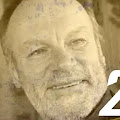 |
| Prof. Nurul Ilmi Idrus, Ph.D |
ARUNGSEJARAH.COM - Marriage, Sexuality and Reproduction: The Myth and the Reality of La Galigo Epic (2).
Bugis Cosmology: Ideal Marriage, Sexual Position and Fertility
In the La Galigo Bugis epic, cosmological marriage
can be analysed on the three levels: the upper world or sky (Bug.: Boting Langi’) as the husband, the
middle world or earth (Alé Lino/Kawa) as the child/ren and the
lower world, or earth (Pérétiwi/Toddang
Toja/Uri’ Liu) as the wife. While the sky (Boting Langi’) is occupied by a ruler of the sky (déwata) named Patoto’é and his wife,
named Datu’ Palinge’, and the lower world (Toddang
Toja) is occupied by Guru ri Selle’ and his wife, Sinau’ Toja, the middle
world (Alé Lino) is still uninhabited
(masua tau ri awa langi’). One of Patoto’é’s advisers, Rukkelleng Mpoba,
who had visited the lower world (Pérétiwi), suggests Patotoé to fill up
the middle world (Alé Lino) with his descendents (rijajiammu), so that the Alé Lino is not uninhabited (aja’ naoro lobbang linoé). If this were
not done, there could be no god because there were no human beings. The
following dialogue expresses the advice of Patoto’é’s advisor to fill up the
earth (Salim and Fachruddin AE 1995):
Rukkelleng Mpoba [a heavenly servant] added submissively,
‘There is absolutely no one
to acknowledge Batara [= Patoto’é, the creator] as
lord,
to show reverence to Pérétiwi [the lower world].
Why, lord, do you not send down one of your family
to appear on earth
so that the world may not remain empty
and so that earth may be filled with brightness?
You are not god, lord, if people are lacking
below sky and above Pérétiwi
to acknowledge Batara as lord.’
Yet Patoto’é [the creator] stayed silent; he
answered not a word.
Then three times Ruma Makompong [another heavenly
servant] addressed him
before La Patigana [= Patoto’é] turned and spoke,
‘I agree to go up to the palace kuta pareppa’é [? the four-square fort]
to inform the mother of La Rumpang Mégga [his
consort] of this.
She will then consent
to place a child below the sky.’[3]
Maddaung wali
Rukkelleng Mpoba,
‘Lé namasua’ mua na
sia
mattampa puang lé ri
Batara,
mappale’ wali lé ri
Pérétiwi.
Tammaga Puang mulo’
séua rijajiammu,
tabbare’ bare’ ri
atawareng,
aja’ naonro lobbang
linoé
makkatajangeng ri
atawareng.
Teddéwata i’, Puang,
rékkua masua’ tau
ri awa langi’, lé ri
mané’na Pérétiwié
mattampa puang lé ri
Batara.’
Ala metté’ ga
Patoto’é, ala mabbali ada sélappa’
Nawékkatellu paddéwe’
ada Ruma Makompong
nainappa na ngkiling
makkeda La Patigana,
‘Taro a’ ménré’ ri sao
kuta pareppa’é
paissengi wi
allingérenna La Rumpang Mégga
Napoélo’ pi Datu
Palingé’
taroé tune’ ri awa
langi’’ (p.
58).
Despite the fact that Patoto’é is the ruler of the sky, he considers that only with his wife’s consent, can the middle world of Alé Lino be filled up. The dialogue between Patoto’é and Datu Palingé’ is as follows:
[Patoto’é gets ready and goes out with his retinue.]
Patoto’é [the creator] declared to his cherished
wife,
‘Why, dear Datu Palingé’ [royal mother],
do we not send down our offspring and create a child
in Kawa’ [on earth],
letting him abandon our divine nature
so that the world may not remain empty
and so that brightness may shine below sky?
We are not gods, dear, if people are lacking
below sky to acknowledge Batara as lord.’
Datu Palingé’ replied,
‘How indeed, Aji Patoto’ [lord creator],
if you wish
to send down a child to the world itself,
could there be brave people to confront you?’
Patoto’é rejoiced greatly
that his cherished wife agreed to send down a child.
Palingé’é [the mother, = Datu Palingé’] declared,
‘It would be good, Aji Patoto’ [lord creator],
to send an order down to Toddang Toja [the Lower World]
to bring up our brothers and sisters,
to bring up here
all our first cousins, our nieces and nephews,
and all
from Toddang Toja [the Lower World] and from Boting Langi’ [the Upper World]
come together here in the palace kuta pareppa’é [? the four-square fort],
all we divine leaders sitting together.
Let it be our common desire to act in common to
place a child in Kawa’ [on earth].’[4]
Kua adanna Patoto’é ri
makkunrai ripawekke’na,
‘Temmaga waé Datu
Palingé’ anri
taulo’ rijajiatta,
tabbare’bare’ tune’ ri Kawa’,
massaliang ngi aju
sengkonang siasettaé,
aja’ naoro lobbang
linoé
makkatajangeng ri awa
langi’.
Teddéwatai’ anri
rékkua masua’ tau
ri awa langi’ mattampa
puang lé ri Batara.’
Mabbali ada Datu
Palingé’,
‘Magi ro waé Aji
Patoto’
na é rékkua lé maélo’
ko
panonno’ tune’ ri Alé
Lino,
maka inai to warani
pang éwai o?’
Natallo’ rio Patoto’ é
lé rituru’na panonno’ tune’
Ri makkunrai
ripawekke’na.
Kua adanna Palingé’é,
‘Madécéng sia Aji
Patoto’,
massuroé kko ri
Toddang Toja
patarakka’ i
sélingéretta
napatarakka’ maneng
ngi mai
sappo sisetta,
anauréta,
narini maneng mai
timummung,
ri Toddang Toja, ri
Botting Langi’,
ri sao kuta pareppa’é,
tasicokkongeng maneng
ponratu.
Pada élo’pi’, tapada
taro tune’ ri Kawa’’ (p.
60).
Bersambung.... Marriage, Sexuality and Reproduction: The Myth and the Reality of La Galigo Epic (3)
Sebelumnya.... Marriage, Sexuality and Reproduction: The Myth and the Reality of La Galigo Epic (1)



%20-%20Abdurrahman%20Al%20Bassam.jpg)



